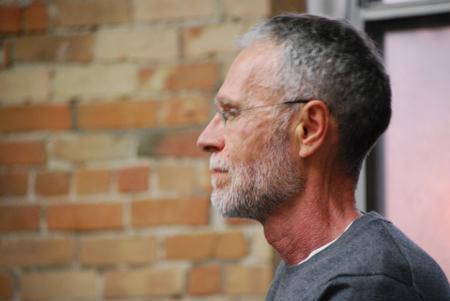In the past 30 years there have been many advancements in our understanding of HIV/AIDS, yet people living with the virus continue to experience discrimination, problems with medical treatment and unfairness in the justice system.
There’s also the question of HIV prevention, especially important as men who have sex with men still represent the largest number of new infections.
Criminalization of HIV nondisclosure
HIV/AIDS advocates say that using criminal law to regulate risky sexual behaviour stigmatizes people living with HIV/AIDS, exposes marginalized people to legal trouble, and does nothing to encourage people to take responsibility for their own sexual health. Advocates have recently softened their stance to ask the province for prosecutorial guidelines that would make it clear which activities are criminal and which are not.
The Liberals announced in March that Ontario Attorney General Chris Bentley was in the process of drafting guidelines, and, more recently, Toronto Centre MPP Glen Murray told Xtra he expected these within 12 months. But Xtra has also learned that Bentley recently applied to intervene in a Supreme Court of Canada case on HIV nondisclosure, arguing that the court’s previous “significant risk” threshold for prosecution should be scrapped. Activists say this will lead to more prosecutions and a greater onus on HIV-positive people to disclose.
AIDS Action Now’s Tim McCaskell worries that the rise of a PC government would halt any progress on the issue.
“The prospect of a change in government would mean that the work would have to be started all over again,” he says. “If the Tories win, we’d have a much more difficult job to convince them.”
Income support for people living with HIV/AIDS?
Many people living with HIV/AIDS rely on limited support from the Ontario Disability Support Plan or Ontario Works (welfare) when medical conditions prevent them from working.
“ODSP puts people far below the poverty line. ODSB rates must reflect the rates that people need to support themselves adequately,” McCaskell says. “The present government has not got a sterling record in making sure those supports are there. We need a government that’s committed to supporting people living healthily and in dignity.”
Both programs also discourage recipients from continuing to work in any fashion because benefits are cancelled or clawed back if recipients have other income.
“It’s kind of an off and on switch,” McCaskell says. “It’s hard with illnesses where people go up and down in order to move in and out of the work force.”
After the Harris PCs cut welfare rates by 21 percent in 1995 and then froze them, the Liberals allowed them to rise again, but they have not regained the ground they lost. A commission on welfare reform is set to table recommendations in June 2012.
The Liberal platform says the party will “consider delivering a new housing benefit for Ontarians who are struggling.” Meanwhile, the PC platform includes a commitment to reform both ODSP and Ontario Works to help people keep more of their benefits as they transition back to work. The NDP promises to reduce ODSP clawbacks and allow welfare rates to rise with inflation.
Halting the spread of HIV
Activists hope that whichever party controls the government on Oct 7 will maintain support for community-based AIDS service organizations that do prevention work.
“They do a far better job of understanding what kind of education works,” McCaskell says.
Another challenge will be working with a Toronto municipal government that is apparently hostile to public health spending and grants to service organizations.
“The municipal government seems no longer interested in public health, even though it’s mandated to,” says Andrew Brett, communications director for the AIDS Committee of Toronto. “It would be even more frightening to have another level of government abandon public health.”
In Vancouver, the city’s Insite safe injection facility for intravenous drug users has helped reduce new HIV infections. But proposals for safe injection programs are controversial.
“Will we be able to make advances on that, given that Insite has proven effective in reducing HIV?” McCaskell says.
Perhaps the most important piece of the puzzle is instituting inclusive safe-sex education in schools, he says.
“That sort of material has wasted away since the early days of the crisis. We’d hope that kids in school would be getting decent information about HIV/AIDS and how to protect themselves.”
All parties, except the Green Party, have pledged to continue increasing health expenditures annually, but no platform says anything about public health. No party has supported the idea of a safe-injection site in the past.
The McGuinty Liberals have expressed disappointment with Ford’s city hall over his cuts to public health and his refusal to accept provincially funded public health nurses, but none of the parties have articulated how they’ll respond to his cuts.
The Liberals attempted to introduce a more inclusive sex ed curriculum last spring but withdrew it days later following an outcry from religious groups. They have said they plan to reintroduce it after public consultations, but little has been said of the plan since. The PCs were openly hostile to the new curriculum, while the NDP supported it.
Catastrophic drug coverage
Many people living with HIV/AIDS rely on coverage from the Trillium Drug Plan to pay for expensive prescription medicines. The program is popular because it benefits all Ontarians who are faced with catastrophic drug costs and is thus not expected to face cuts. No party has yet threatened it, but it’s important they commit to maintaining catastrophic drug coverage.


 Why you can trust Xtra
Why you can trust Xtra


